New Google Video from Genealogy Gems!
Google your family history with Genealogy Gems! Google has a great collection of free online search tools–all powered by the same Google search engine–that can help you discover your family history. In this new Genealogy Gems Premium eLearning video,...Genealogy Research Trip Produced Amazing Family History Find
We love the ease with which we can search online, but a genealogy research trip can offer exceptional and unique rewards. If you have been apprehensive about visiting a courthouse or archive, follow our 4 step plan for a successful genealogy research trip that could lead to your own amazing discovery!
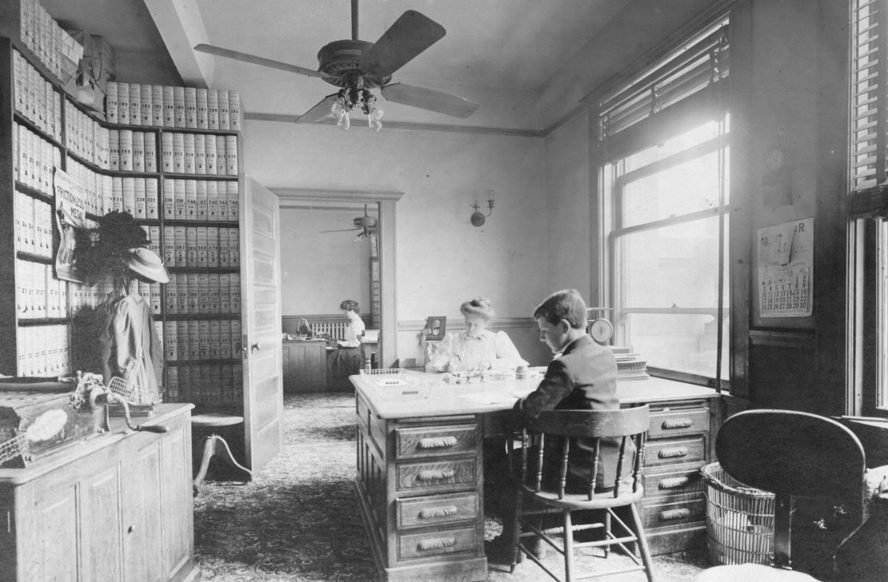
By J. D. Cress [Public domain], via Wikimedia Commons
In my genealogy world, if an answer can’t be found on one of my favorite genealogy website repositories (like FamilySearch, Ancestry, or Findmypast) then a quick Google search usually does the trick.
However, we new genealogists of the Internet era may be banking on the fact that “everything” we need is online. This is obviously not true. In fact, many local libraries and archives are under-staffed and under-funded making digitizing of their holdings difficult. This is why making a genealogy research trip is a really good idea.
The Unprepared Genealogy Research Trip
Several years ago, I made my first research trip. I was woefully unprepared. On a whim, I drove three hours on a weekday to “go to the courthouse.” I arrived at lunch time…and it was closed for an hour. Sigh. However, a nice receptionist sugg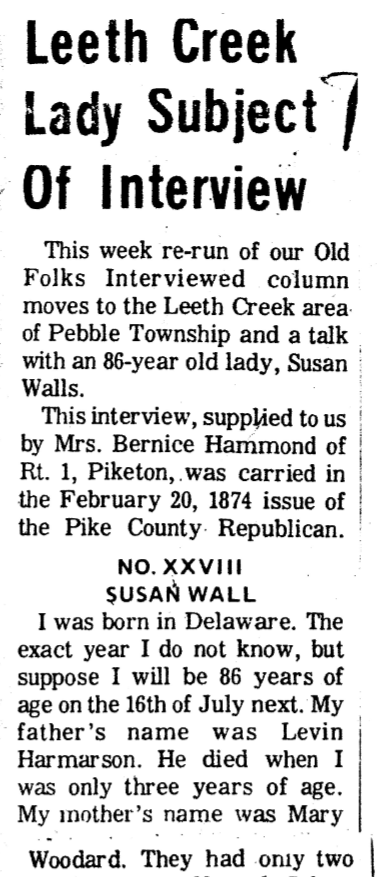 ested I go to the local public library just down the street.
ested I go to the local public library just down the street.
When I arrived at the tiny corner building, I asked at the circulation desk for the history department. She seemed a little taken back, but said, “We have a little room in the basement with some local history and genealogy things.” Note to self: not all libraries are large enough for a “history department.”
In the basement room, no one was on duty, but a nicely printed instruction sheet of what was available and how to use their files laid on the table. “I guess I just dig in,” I thought, and off I went.
Though this was my first genealogy research trip, it proved to be very fruitful. In a scrapbook simply titled “Walls Family,” I found a Xerox
copy of an article from an 1874 newspaper. In this article, my fourth great-grandmother (Susannah Harmarson Walls) had been interviewed because she was the oldest living woman in the township. Her interview began, “I was born in Delaware. The exact year, I do not know, but I suppose I will be 86 years of age on the 16th of July next. My father’s name was Levin Harmarson. He died when I was only three years of age. My mother’s name was Mary Woodard.”
The interview included the story of her mother re-marrying, the family leaving Delaware for Wheeling, Virginia, and she marrying her step-brother there. Then, they traveled on into Scioto County, Ohio. She named each of her eleven children and their spouses.
The information in this one interview was particularly helpful. Before this, we had no idea when or where Susannah and Levi married, and finding the spouses of their children had proved difficult!
Though this was an amazing find, I wonder what other records, items, or photographs I might have dug up had I prepared ahead of time. Perhaps, I would have had time to dig more into their microfilm holdings, archived pictures, atlases, or even had time to go to the local cemetery.
The Prepared Genealogy Research Trip
Fast forward several years and I am making much more prepared genealogy research trips. Get the most from your next genealogy research trip by following these 4 important steps:
1. Run a Narrative Report. Start creating your genealogy research trip plan by printing out a narrative report of your targeted family line. This can be done with the reports feature found in genealogy database programs like RootsMagic.
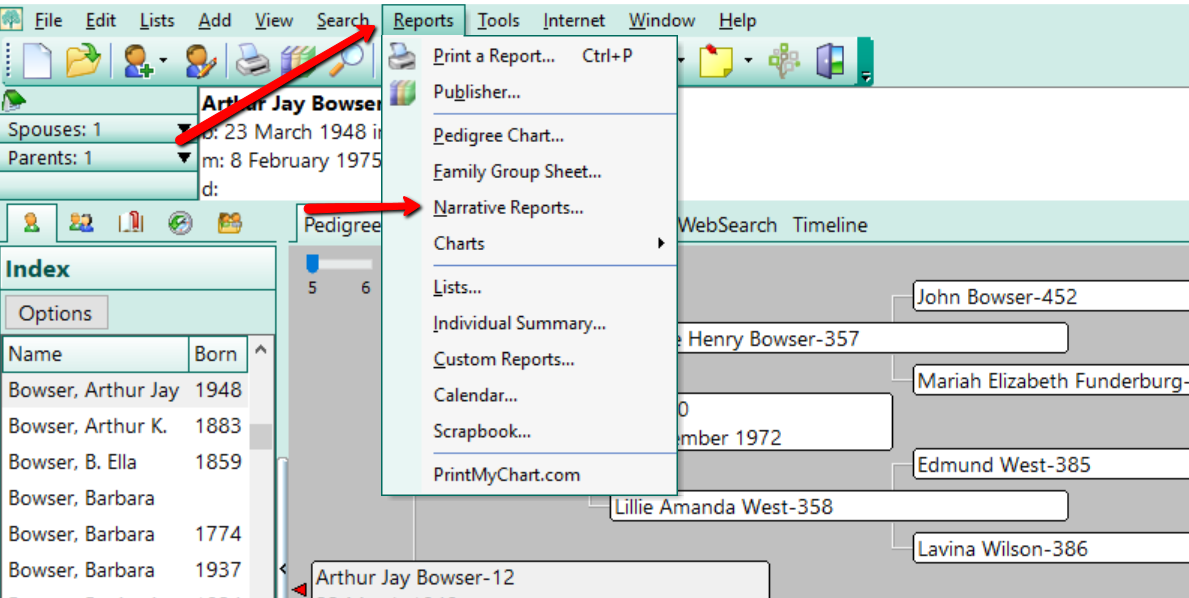
2. Look for holes in your research. Carefully read through the report looking for holes in your research or where you may be missing a source. In this case, a “hole in your research,” may be the missing marriage date of a couple, or the missing birth date of a child. Circle these “holes” and make a list of what the needed piece of information is to correct it and where you can find it.
Example: Clark County, Ohio. Need a death date for Edmund West. County didn’t keep death records that early. Likely died between 1830-1840. Check probate record books, estate files, tax records, cemetery records, and tombstones at Wilson Cemetery.
Maybe you have a birth date, but no source. A source is the proof of a particular fact. For example, a good source for a birth date is a birth register or even a marriage record. If you are lacking sources for your genealogy facts or are not sure how to begin sourcing your genealogy, learn more about that here.
3. Decide what repositories you will need to visit. After creating your list, determine where these items are held by asking yourself important questions, such as: Will I need to visit the courthouse, a library, an archive, cemetery, or all the above? Which location will produce the most results? Should I visit the archives first, or the courthouse?
4. Contact each repository ahead of time. Finding out the days and times when each of these places is open before you go is a must! Try to pick a day when all, or most, of the places are open so that you can get a lot done. If this isn’t possible, consider making an extended stay overnight to accomplish your goals.
Keep in mind that not all websites are up-to-date. Just because the library says it is open from 10 to 5 every day but Sunday on the webpage doesn’t necessarily mean that is still the case. Always call each establishment to verify days and hours of operation.
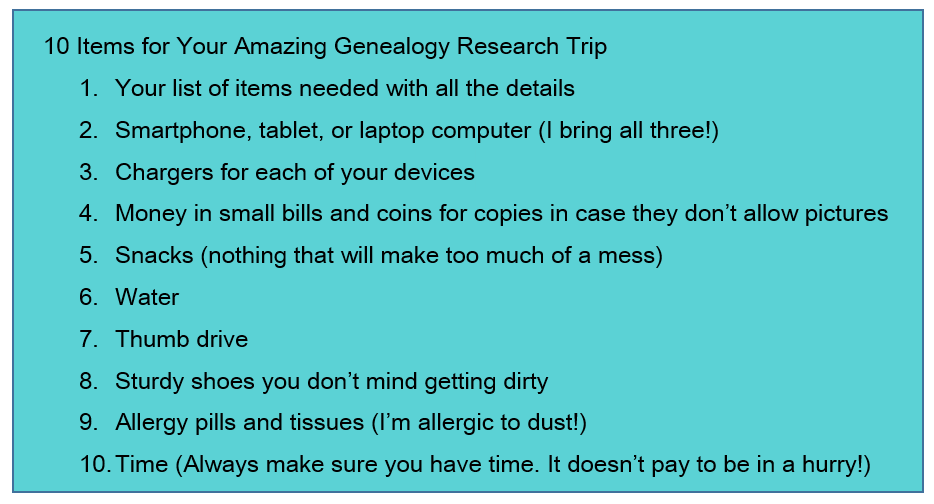
Remember, there are newspapers, maps, documents, and pictures just waiting to be uncovered. By thinking about what you want to achieve while on your trip and what information you need to find and where, your genealogy research trip can be a successful one. Happy hunting!
More on Genealogy Research Trips
Still feeling unmotivated to get on the road, read or listen to these features for inspiring tips to make a courthouse records research trip in your near future!
Courthouse Records Research Trip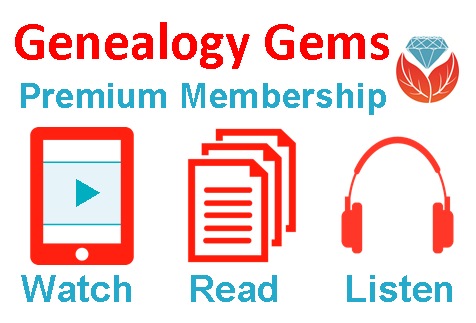
Premium Podcast Episode 126 – Road Trips for Genealogy
Premium Video – Using Evernote to Create a Genealogy Research Plan
Millions of New Genealogy Records Online for Norway & Europe
The UK ‘genealogy giant’ Findmypast has made exciting new updates to their records this week! They’ve announced over 100 million new European records are now available online, and this week highlights their extensive collection for Norway. Also new this week are genealogy records for Staffordshire, England; Queensland, Australia; and Ontario, Canada.
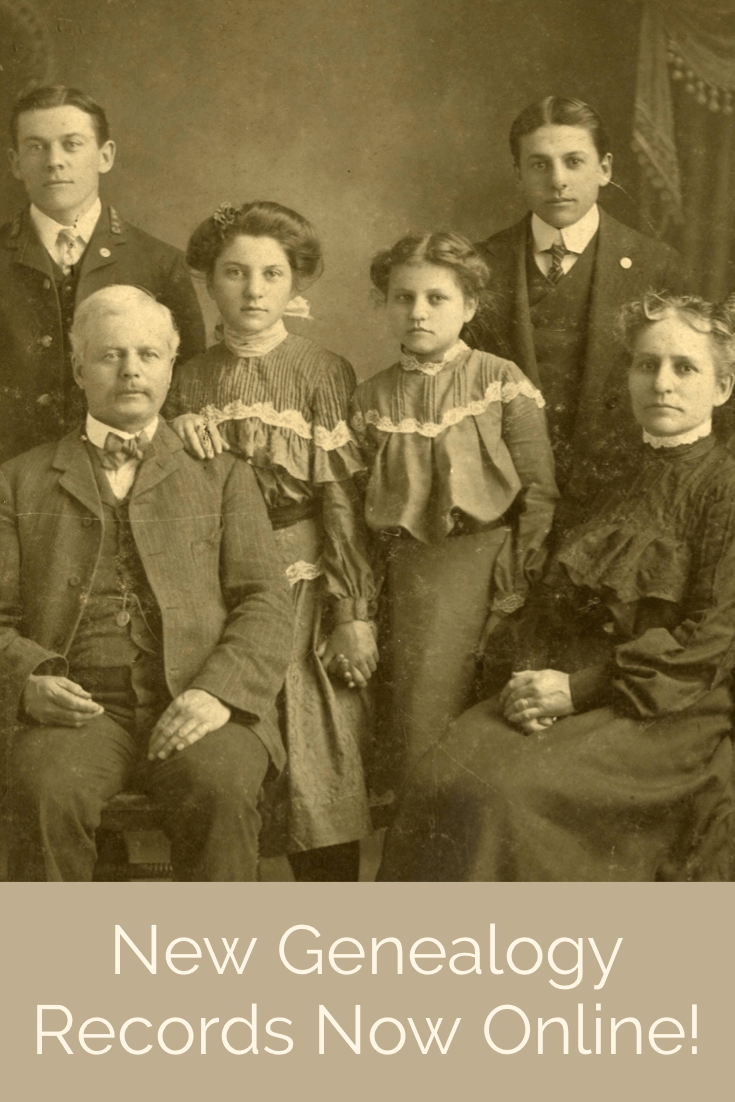
New European Records Online: Norway Featured
Findmypast recently announced their addition of over 100 million new European records now online. “Over 114 million new European births, baptisms, marriages, banns, deaths and burials are now available to search and explore on Findmypast. The new additions consist of transcripts sourced from the International Genealogical Index, a database compiled from a variety of sources from around the world.
Featured from this huge addition are three new indexes containing over 9.1 million Norwegian baptisms, marriages and burials are now available to search as part of our new collection of European records. These new collections span nearly 300 years of Norwegian history (1634 to 1927) and will generate new hints against your Findmypast family tree.
Anyone with ancestors from Norway has probably tapped into the National Archives of Norway’s Digital Archive. It’s one of the shining stars on the Internet that offer rays of research hope for those with Norwegian heritage. That’s why I was thrilled to be able to interview Yngve Nedreb, the Chief archivist at Riksarkivet (National Archives of Norway) for the Family Tree Magazine Podcast. In fact, I published an extended version of that interview in episode #161 of The Genealogy Gems Podcast. This is a “must hear” for those with Norwegian heritage! Click below to listen right now:
Lisa’s special guest: Yngve Nedrebø, Chief Archivist at Riksarkivet. http://www.arkivverket.no/eng/Digitalarkivet
Staffordshire, England Vital Records
Another brand new genealogy records collection online is over at Ancestry.com. The Staffordshire, England, Birth, Marriage and Death Indexes, 1837-2017 collection comprises indexes of civil registrations from Staffordshire, excluding the City of Stoke-on-Trent, reported quarterly to the General Register Office (GRO) in London.
- Name
- Maiden name of mother
- Date of event
- Death Age
- Place of Marriage
- Gender
- Registration district (each county in England and Wales was divided up into registration districts; jurisdictions are organized and appear as they existed at the time the record was created)
- Reference
Queensland, Australia
Also new at Ancestry is the Queensland, Australia, Licensed Victuallers Index, 1900-1903. The names of holders of victuallers’ licenses (publicans) were printed in the Queensland Government Gazette from 1900 to 1914 on an annual basis. This index covers the period from 1900 to 1903 and includes names, districts, and hotel names.
More about licensed victuallers from Wikipedia: “In the United Kingdom the owner and/or manager of a pub (public house) is usually called the “landlord/landlady”, and often, strictly incorrectly, “publican”, the latter properly the appellation of a Roman public contractor or tax farmer. In more formal situations, the term used is licensed victualler or simply “licensee”.[9] A female landlord can be called either a landlady or simply landlord.”
Ontario, Canada Insurance Policy Applications
Findmypast has another new collection now available online. “Did your Canadian ancestor apply for life insurance with The Independent Order of Oddfellows (IOOF) between 1875 and 1929? The IOOF is one of the world’s oldest fraternal orders. These insurance records are a unique source for tracing your family history. You will find images of the original applications which include your ancestor’s medical history, family’s medical history, and a physical description. The applications are two pages long. Be sure to use the next arrow to move to the next image.
Click to search the Ontario, Oddfellows Life Insurance Applications.
Discover More with the Genealogy Giants
Here at Genealogy Gems, we’ve adopted the name ‘Genealogy Giants’ to refer to the 4 major genealogy records websites: Ancestry.com, Findmypast.com, MyHeritage.com, and FamilySearch.org. Each website has its own unique and distinct offerings, but there can also be a lot of overlap. So with hefty subscription price tags, the question we’re often asked is, “Which website subscription do I need?” To tackle this, Sunny Morton’s RootsTech class uncovers the secrets on how to compare these 4 giants so that you spend your time and money wisely. Watch the entire presentation for free below, and then grab a copy of the companion quick reference guide Genealogy Giants: Comparing the 4 Major websites.

Disclosure: This article contains affiliate links and Genealogy Gems will be compensated if you make a purchase after clicking on these links (at no additional cost to you). Thank you for supporting Genealogy Gems!




